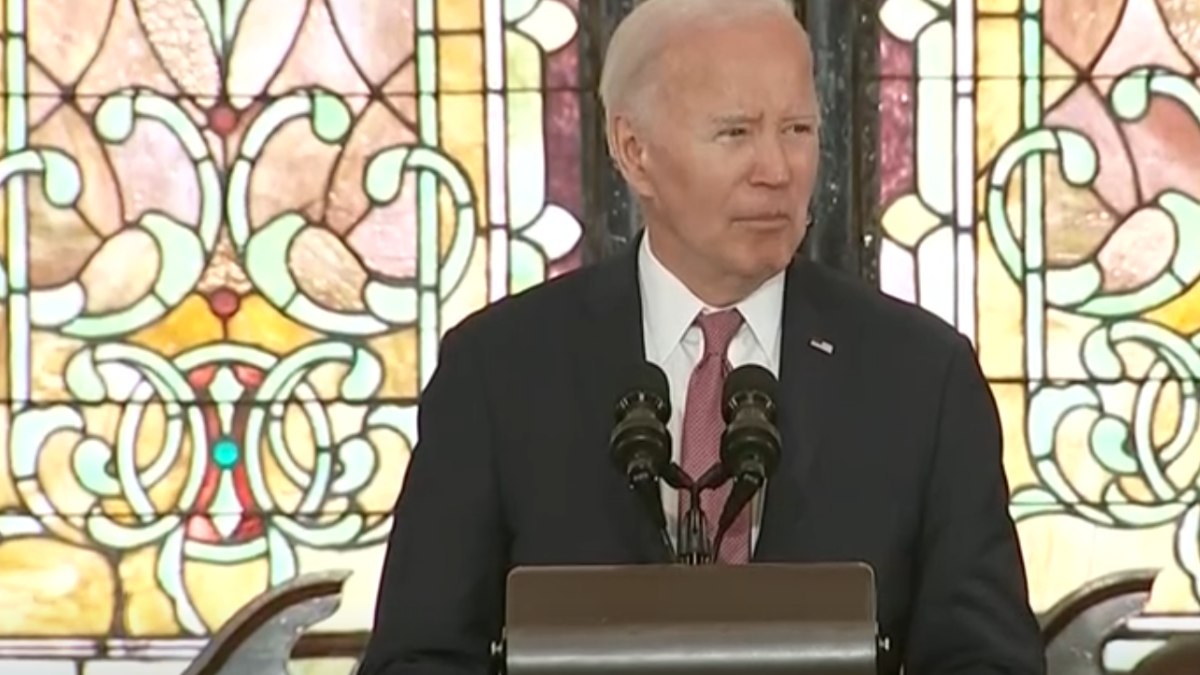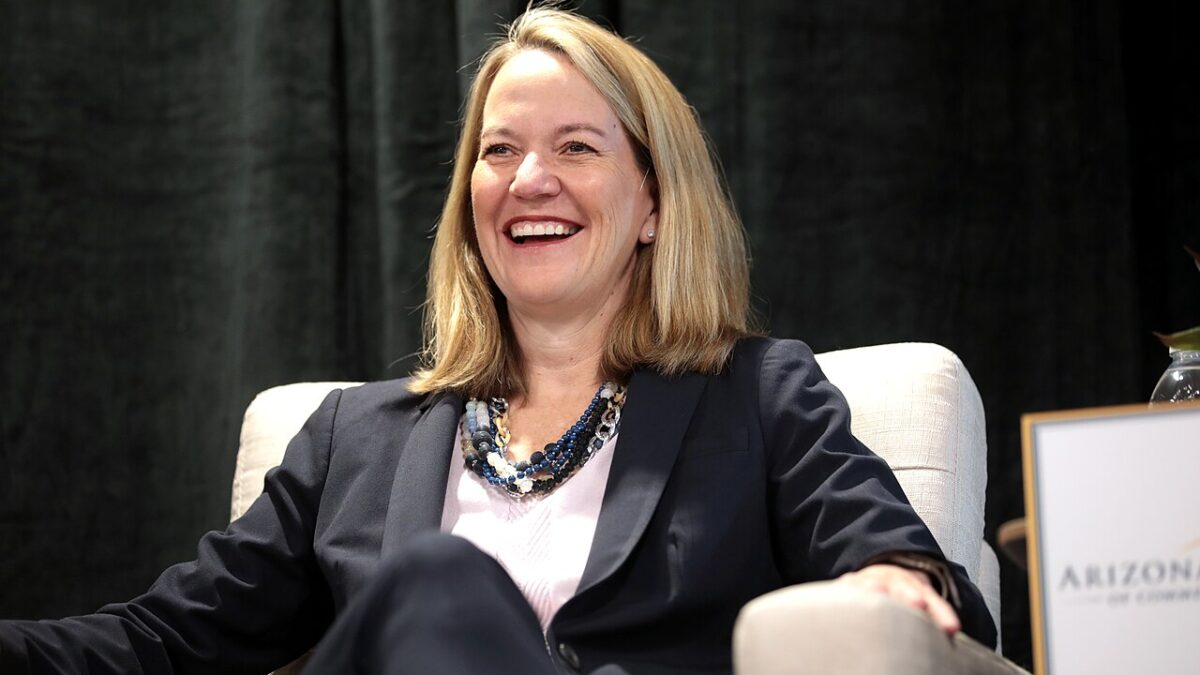
This week, I didn’t just want to quit Facebook. I wanted to quit the internet.
The outpouring of vitriol surrounding President Donald Trump and the media’s response was endless. My Facebook page was overwhelmed with angry statuses (or depressed statuses). My aunt chose to share a picture of firefighters holding puppies, and several friends shared the latest “Beauty & the Beast” preview, so there were some moments of humor and non-political friendship. But they were few.
Twitter proffered an endless onslaught of fear and anger. Every newspaper and magazine I read was overflowing with Trump-centric news. And everyone seemed to be shouting at someone else.
How Do We Combat Our Depressing Dialogue?
Regardless of one’s stance on partisan issues, the past several days have been frustrating. This isn’t about Trump’s executive order, its goodness or badness. This is about the way we’ve responded to it, and the way our feelings have prompted us to act toward each other.
Some people—those who aren’t active on social media, say, or those who’ve selected their friend group carefully—may have felt safe and sheltered from all of this.
But many others have felt this same sense of depression and lowness. As Bethany Mandel wrote yesterday, it’s tempting to just get off Facebook and leave the drama behind. It’s tempting to leave the news alone, turn off the computer, and do something else.
But as a journalist, my job is to read. And to analyze. And to write. This week, I assure you, I wanted to do anything but.
The Internet Prevents Us From Truly Seeing Each Other
The internet sets up a sort of emotional veil. It enables us to respond in ways we would not if we were meeting in person. As one friend put it, “We’re a society untethered by the restraints of what used to be considered propriety. No longer is there the interactional stability that once existed in … public discourse, where you were forced to realize the human being across from you at any moment could burst into tears or laughter so you’d better speak accordingly.”
When we can’t see each other, we needn’t love each other—at least, not in the same way.
But it doesn’t have to be this way.
We Need To Talk In Person, Not On Facebook
Perhaps the first step to take is the simplest one: meet. With real people, in real time. Have actual conversations—political and apolitical. Over coffee, or Friday night pizza. While walking the dogs in the park, or playing with our kids at the playground. During lunch breaks at work, or after the Super Bowl. While we pass around the wine, or drop a plate of cookies off at a friend’s house. Meet. Don’t “post.”
Because what happens when we meet with people is that we see their particularities, their differences, their unique beauty and feeling. As Aldous Huxley puts it in “Brave New World,” “For particulars, as everyone knows, make for virtue and happiness; generalities are intellectually necessary evils.”
Things are a lot easier when we see peoples as mass groupings of “good” and “evil”—when Obama or Trump can be our arch-nemesis, and their followers a group of fiends that we can castigate and condemn. It’s easier when we can forget etiquette and propriety. When we can spew words without seeing their effect.
But physicality demands respect. It shows us the particulars, the details that differentiate and illuminate.
It Won’t Be Perfect—But We Need To Have These Conversations
That doesn’t mean the conversations will always be easy and simple in real-time, either. There will still be differences and disagreements. As someone who doesn’t seem to fit party definitions or stereotypes easily, I find myself disagreeing with people more often than I’d like. Too often, I hide behind a mask of nodding and smiling, avoiding conflict at every turn.
But this is sometimes—often—a copout. I’m trying to figure out how to explore disagreements in a civil and loving manner, in a way that entices people to dig deeper into their beliefs. In a way that prompts me to dig deeper into my own.
I’m still figuring it out. But it’s vital that we extend grace with our truth, and truth with our grace—that we do not shirk one or the other when we talk to those outside our bubbles of comfort. It’s important that we bring our true selves to the table, and are willing to be both vulnerable and loving, kind and truthful.
We Should Break Bread Together
It’s also important that food be part of these equations, more often than not. That sounds like a funny statement. Perhaps it is. But something happens when we break bread together—when we offer food or drink to those different from us. It break downs barriers, and helps us to connect. It enables us to serve each other in an exceedingly practical and meaningful way. The table connects us, when little else does or can. We can all agree that a good bottle of wine and a plate of chocolate chip cookies are good. We can all join together around a bowl of popcorn and a fun movie. We can set aside our differences and grievances to enjoy a breakfast of pancakes and bacon.
When we make room for each other around the table, we open up opportunities for generosity and understanding that might not exist otherwise.
Hospitality is often the virtue that fosters and makes room for all the others. If so, it’s more important than ever before that we extend it in our day-to-day lives.
It’s Time To Stop Living On The Internet
It’s time to stop living on the internet. It’s easy to do: checking news, reading stories, browsing our news feed, catching up on Instagram. The hours disappear before we realize. But the internet is not real life. It’s visceral emotion and mind dumps. It’s vibrant pixels and pictures.
Don’t get me wrong. I’m thankful for the internet. It enables me to do my job, as a mom. But it is not—it cannot be—my life. It cannot be my basis for social interaction. In order for it to cease having such a strong presence in my day-to-day existence, I’m going to have to change: to be more proactive, to seek people out, to open my doors with increasing regularity.
But the point is, the world is more deep, poignant, and meaningful outside the drama of Facebook. And in order to combat the worst tendencies of our Trump-centric news cycle, I think I’m going to have to spend more time out there, and less time on here.







